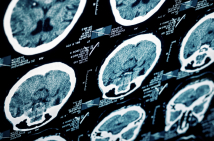NCD Watch
Be Aware of Stroke
31 Mar 2014 (Mon)
 Stroke was the fourth commonest cause of death in Hong Kong with 3 276 registered deaths (or 7.5% of all registered deaths) in 2012. Stroke is also a medical emergency that often requires hospital admission for treatment. In 2012, there were over 25 700 episodes of in-patient discharges and deaths due to stroke in public and private hospitals. In general, the rate of in-patient discharges and deaths from stroke for males (421.3 per 100 000 population) was higher than that for females (306.0 per 100 000 population), and increased sharply with age from 12.2 per 100 000 population for people aged 24 and below to 1 805.1 per 100 000 population for people aged 65 and above.
Stroke was the fourth commonest cause of death in Hong Kong with 3 276 registered deaths (or 7.5% of all registered deaths) in 2012. Stroke is also a medical emergency that often requires hospital admission for treatment. In 2012, there were over 25 700 episodes of in-patient discharges and deaths due to stroke in public and private hospitals. In general, the rate of in-patient discharges and deaths from stroke for males (421.3 per 100 000 population) was higher than that for females (306.0 per 100 000 population), and increased sharply with age from 12.2 per 100 000 population for people aged 24 and below to 1 805.1 per 100 000 population for people aged 65 and above.
Getting familiar with the warning signs of stroke including transient ischaemic attack (TIA) or 'mini-stroke' and acting fast to get medical attention could save lives, reduce disabilities and improve treatment outcomes. The warning signs of stroke and TIA include:
- Sudden numbness or weakness of the face, arm or leg, especially on one side of the body.
- Sudden confusion, trouble speaking or understanding.
- Sudden trouble seeing in one or both eyes.
- Sudden trouble with walking, dizziness, loss of balance or poor coordination.
- Sudden, severe headache with no known cause.
Regarding stroke prevention, there is good evidence that adherence to healthy lifestyle factors is associated with a lower lifetime risk of stroke. Besides, the greater number of healthy lifestyle factors one has, the more protection one gains against stroke. Here are some tips for optimal brain health and reducing the risk of brain attack:
- Do not smoke. Smokers should know that quitting today can immediately and markedly reduce stroke risk.
- Maintain optimal weight and waist circumference. Asian adults should aim at maintaining a body mass index (BMI) between 18.5 and 22.9. Irrespective of their BMI, Asian men should keep their waist circumference below 90 cm and Asian women should keep theirs below 80 cm.
- Eat a balanced diet that is high in fruit and vegetables with appropriate amounts of whole-grains.
- Stay physically active and avoid prolonged sitting.
- Keep blood pressure, blood sugar and blood cholesterol at optimal levels. Healthy adults are generally advised to maintain a SBP of less than 120 mmHg and a DBP of less than 80 mmHg; a fasting blood glucose of less than 5.6 millimole per litre (mmol/l); and a total blood cholesterol of less than 5.2 mmol/l.
- Keep hypertension, diabetes, hypercholesterolaemia, heart diseases, and other medical conditions under control.
- Mange negative emotions with healthy coping strategies.






































